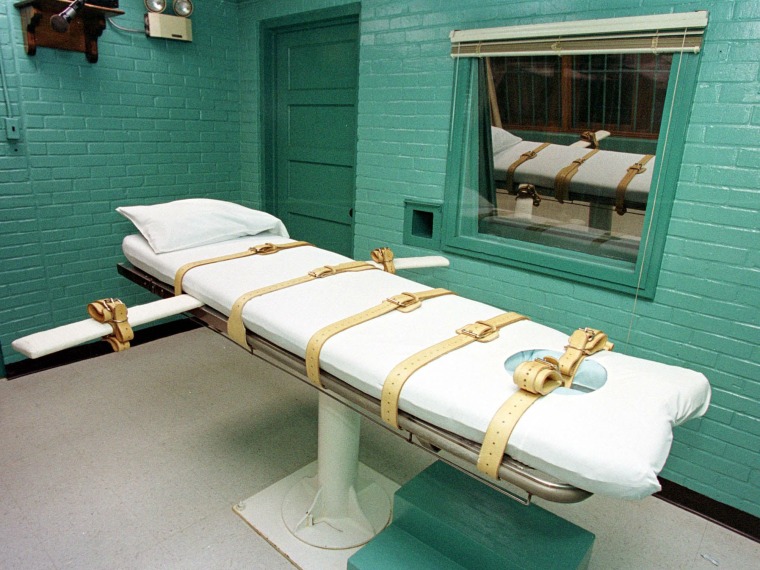A federal judge in California has ruled the state's death penalty system unconstitutional.
U.S. District Judge Cormac J. Carney ruled that the state's capital punishment system was in violation of the Constitution's eighth amendment, which prohibits cruel and unusual punishment. He says the system is "so plagued by inordinate and unpredictable delay that the death sentence is actually carried out against only a trivial few of those sentenced to death."
Carney also wrote: "For all practical purposes then, a sentence of death in California is a sentence of life imprisonment with the remote possibility of death -- a sentence no rational legislature of jury could ever impose."
The judge pointed out in his ruling that since the death penalty was adapted by California voters in 1978, more than 900 people have been sentenced to death, but only 13 of them were actually executed. Currently, 748 convicts are either awaiting execution on California's death row or having their sentence re-evaluated by the court system. Among them is Scott Peterson, who was found guilty of first-degree murder in the death of his pregnant wife, Laci in 2004. His trial was highly publicized and his case is currently pending appeal with the state supreme court.
The state's death penalty system was brought under scrutiny in light of a petition from Ernest Dewayne Jones, who was convicted of first-degree murder and sentenced to death in 1995. He has been awaiting his execution for nearly two decades when he filed his petition. Judge Carney also vacated Jones' death sentence in the ruling.
"Mr. Jones's case is illustrative," Judge Carney writes. "For Mr. Jones to be executed in such a system, where so many are sentenced to death but only a random few are actually executed, would offend the most fundamental of constitutional protections."
This isn't the first time the death penalty system in California has been the focus of criticism. In 2004, the state established the California Commission on the Fair Administration of Justice to evaluate the judicial system. The commission found in its final 2008 report that California's death penalty system "is dysfunctional." The report went on to say "The system is plagued with excessive delay in the appointments of counsel for direct appeals and...a severe backlog in the review of appeals."
The death penalty was ruled unconstitutional by the California Supreme Court in 1976, but reinstated the following year. The Los Angeles Times reports the state has spent $308 million on each of the 13 executions that have been carried out.
